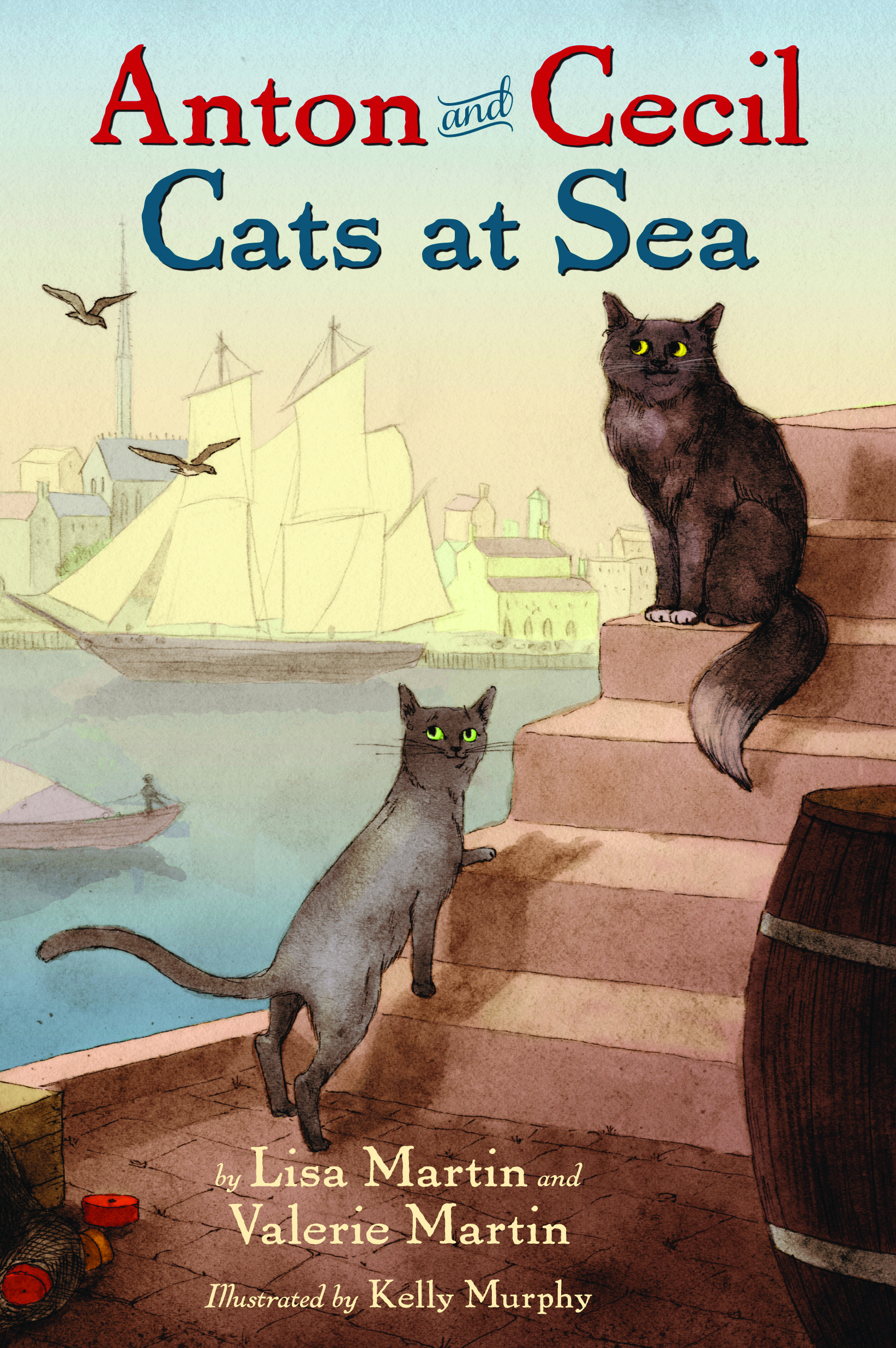Q&A with Valerie and Lisa Martin

Lisa and Valerie Martin are co-authors of the children’s book, “Anton and Cecil: Cats at Sea.”
Lisa has published in Ladybug Magazine, and has written several collections of children’s poetry. She has worked as an educator and children’s poet and currently resides in Charlottesville, Va.
Orange Prize-winner Valerie is also the author of eight acclaimed adult novels, including “Property” and “The Confessions of Edward Day,” which was a New York Times notable book for 2009. She has taught in writing programs at Mt. Holyoke College, University of Massachusetts and Sarah Lawrence College, among others. She resides in Dutchess County, N.Y., and is currently Professor of English at Mt. Holyoke College.
What do you do when you have writer’s block?
 Valerie: For me there’s writer’s snag, and then there’s writer’s block.
Valerie: For me there’s writer’s snag, and then there’s writer’s block.
For a snag, when the next sentence refuses to materialize even though you know what it’s going to be about, I find a hot shower, a drive, or a walk is the best solution. Very helpful if you have a dog, which I don’t now. A dog will lie by your desk all morning waiting for the snag and then get you outside in all weather to fix it.
For writer’s block, which I’d describe as feeling deeply disinclined to write anything, there is nothing to do but wait. Clean your house, go see old friends, read the first three books on your list of books to read when you have time. Sit before the blank page for 15 minutes per day, no matter what. Try not to cry.
 Lisa: I plow into research, which gives me the feeling of making progress but can lead, via topic drift, into some time-wasting as well. Often a few images of what or where I’m writing about, or an essay or poem or interview about it, can really spark something in my brain and put me back on track. If I’m stuck on the whole overarching plot, then I scribble all of the questions, uncertainties and non sequiturs into a notebook, conversing inanely with myself until I get it straight.
Lisa: I plow into research, which gives me the feeling of making progress but can lead, via topic drift, into some time-wasting as well. Often a few images of what or where I’m writing about, or an essay or poem or interview about it, can really spark something in my brain and put me back on track. If I’m stuck on the whole overarching plot, then I scribble all of the questions, uncertainties and non sequiturs into a notebook, conversing inanely with myself until I get it straight.
Why should people come listen to you talk about your book?
Lisa: The backstory of how we came to this setting, these characters and this tale may be of interest to those who wonder how ideas are generated and marshaled into something coherent. Lots of people ask about our collaboration, as it’s much less common in fiction to write with someone else than alone, and we began the project with entirely different levels of experience and expectation, and so meshing all of that was quite interesting as well.
Valerie: Writers think about stories differently than readers do so it can be enlightening to hear writers talk about their books—I like to do it myself. In the case of “Anton and Cecil: Cats At Sea,” there are two of us and we are still writing about our characters—two brother cats—for the sequels, so we’re still excited about the process. I enjoy hearing the questions readers ask and trying to answer them in a way that leads them a little deeper into the story than they might otherwise get.
Why write?
Valerie: I’d like to alter this question to “Why write fiction?” Why make up stories about characters who don’t exist and things that never happened? I love to read stories and when I find one that really affects me, I want to try something along those lines myself. Writing fiction is a conversation I’m having about what kind of book I’d like to read next. I write because I love to read stories.
Lisa: I would echo what Valerie says above. Sometimes I read a story full of so much intangible great stuff that I find I’m slowing down before the end, not wanting to finish because it feels so wonderful to be in that world. It’s hard to even reread and put your finger on why it’s that good—artful turns of phrase, subtle but clever descriptions, deft pacing, a killer voice—and I wish I could write that well. So I keep writing because I’d like to get there, someday.
Why children’s books?
Valerie: The books I loved as a child made my world more interesting, and my mind more alive. Abstract concepts like courage and kindness took on substance and I identified with the struggles of the characters to find justice and safety, or simply to make the right choices and do the right thing. I love the enthusiasm children bring to reading and how honestly they engage with the world of the story. They are looking for the stories that will enlarge their world and take them to unexpected places, just as I did. Writing for children takes me back to that original excitement.
Lisa: I realized recently, now that our book is out there and I’m visiting schools and students, that the connection with children that you get when you write for them is the best part of the enterprise for me. Third-graders (for instance) are so open and alive, full of questions and suggestions and flat-out surprises, and that jolt of goodness is rejuvenating and motivating. After my last school visit, I skipped back to my car.


